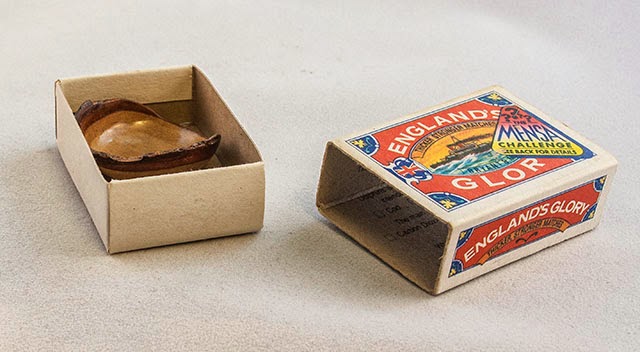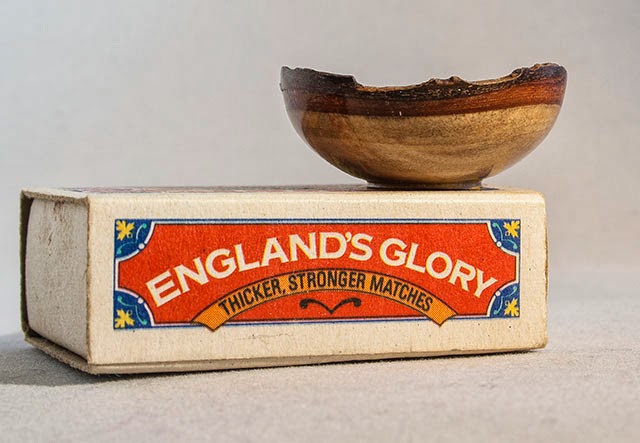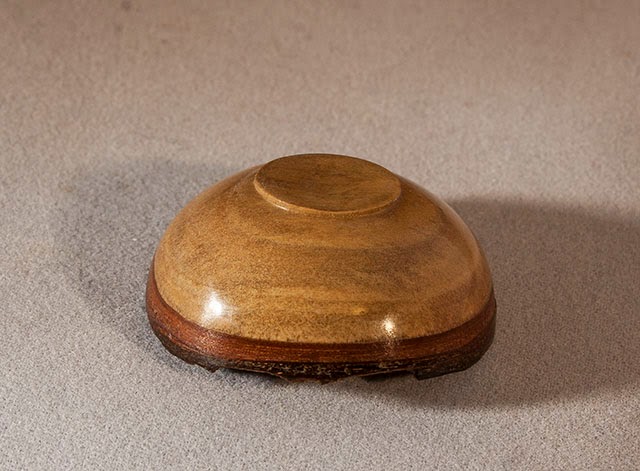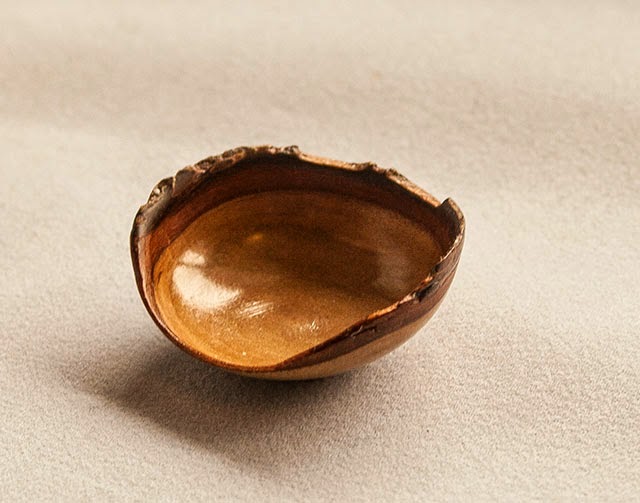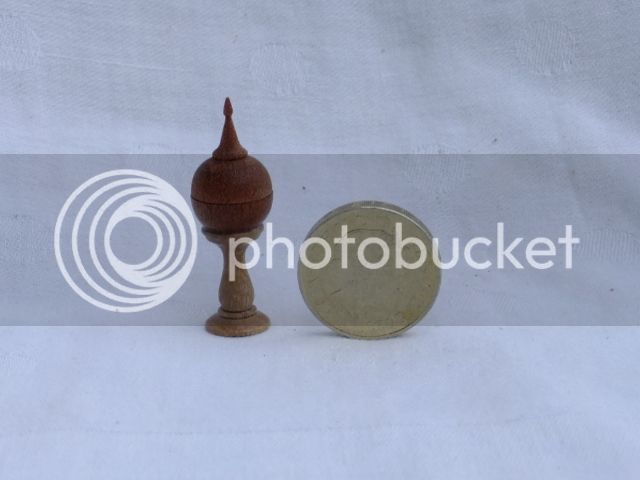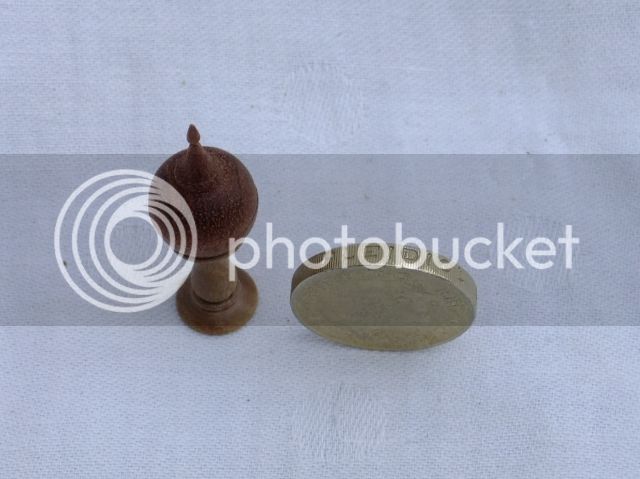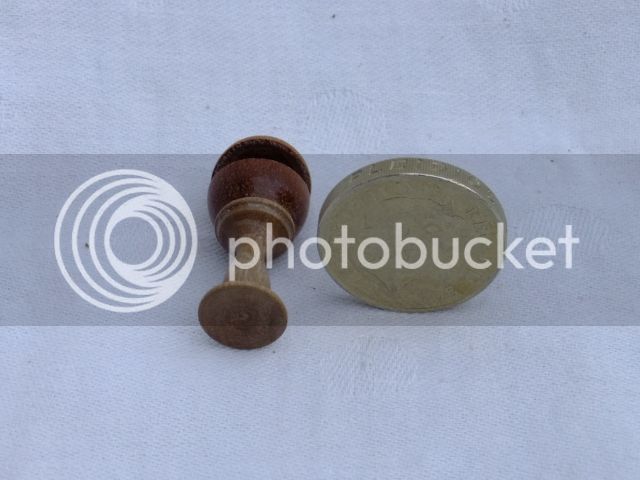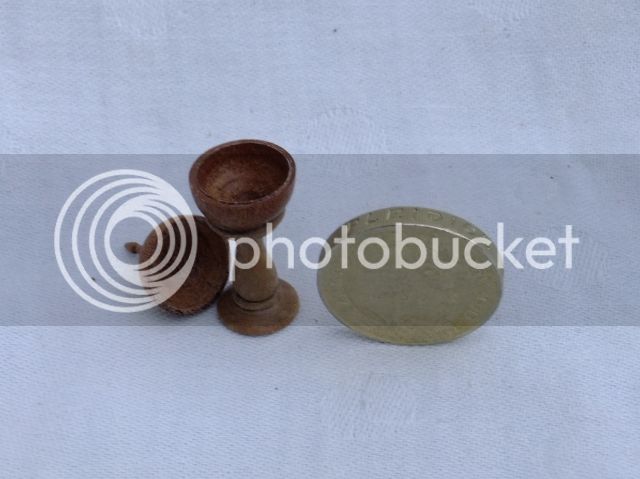henton49er
Established Member
PLEASE POST YOUR ENTRIES FOR THE MARCH CHALLENGE HERE.
Challenge Requirements: Smaller than a matchbox
This month’s rules are:-
The Challenge is open to anyone and everyone
Your entry must be new and made specifically for the Challenge
Entries must be turned on a lathe using woodturning tools.
The maximum size allowed for your turning(s) is a matchbox size (defined as 15mm by 35mm by 50mm maximum dimensions :shock: :shock . If you submit more than one item, all items must fit together within the maximum dimensions. (e.g. a miniature cup and saucer must still fit within the maximum dimensions with the cup sat on the saucer; a pair of items can each be 50mm high, but when stood side by side can only be 35mm wide in total and 15mm deep in total; you can see that a bowl can at most be 35mm in diameter and 15mm high to comply with the dimensions)
. If you submit more than one item, all items must fit together within the maximum dimensions. (e.g. a miniature cup and saucer must still fit within the maximum dimensions with the cup sat on the saucer; a pair of items can each be 50mm high, but when stood side by side can only be 35mm wide in total and 15mm deep in total; you can see that a bowl can at most be 35mm in diameter and 15mm high to comply with the dimensions)
No decoration, colouring, piercing, adornment, pyrography or texturing is allowed. We want to see your turning abilities!! Beads, coves etc are a normal part of woodturning and are acceptable.
Please post 3 images of your work along with a brief note about how you made it, what tools and finish you used, what wood you used and the object’s dimensions etc.
1 showing a general view
1 showing a top view
1 showing a bottom view
A fourth photo may be provided to show any particular feature of your entry (optional)
As the items being turned are small, close up photos will be required such that the items sensibly fill the photograph area. Please include a readily identifiable item in your photos as a guide to size (e.g. part of a tape measure or a 20p coin). [Hint: if your camera does not do close-ups, try photographing at a larger image size and then cropping the image to the required size so that your entry fills the image submitted.]. In the February Challenge some entrants posted more than the required three pictures. [-X [-X [-X Please keep to the required number for fairness to all entrants!!
Image size - please use image size 640 x 480 0.3 mp, as in previous challenges
Please upload your pictures and description between 10pm on the 27th March and 10pm on the 29th March.
Please also send me a PM giving me your own opinions of 1st, 2nd and 3rd places amongst the entries (other than your own) between 10pm on 29th March and 10pm on 31st March (for me to compile the entrants’ scoring).
Roundup
Challenge Requirements: Smaller than a matchbox
This month’s rules are:-
The Challenge is open to anyone and everyone
Your entry must be new and made specifically for the Challenge
Entries must be turned on a lathe using woodturning tools.
The maximum size allowed for your turning(s) is a matchbox size (defined as 15mm by 35mm by 50mm maximum dimensions :shock: :shock
No decoration, colouring, piercing, adornment, pyrography or texturing is allowed. We want to see your turning abilities!! Beads, coves etc are a normal part of woodturning and are acceptable.
Please post 3 images of your work along with a brief note about how you made it, what tools and finish you used, what wood you used and the object’s dimensions etc.
1 showing a general view
1 showing a top view
1 showing a bottom view
A fourth photo may be provided to show any particular feature of your entry (optional)
As the items being turned are small, close up photos will be required such that the items sensibly fill the photograph area. Please include a readily identifiable item in your photos as a guide to size (e.g. part of a tape measure or a 20p coin). [Hint: if your camera does not do close-ups, try photographing at a larger image size and then cropping the image to the required size so that your entry fills the image submitted.]. In the February Challenge some entrants posted more than the required three pictures. [-X [-X [-X Please keep to the required number for fairness to all entrants!!
Image size - please use image size 640 x 480 0.3 mp, as in previous challenges
Please upload your pictures and description between 10pm on the 27th March and 10pm on the 29th March.
Please also send me a PM giving me your own opinions of 1st, 2nd and 3rd places amongst the entries (other than your own) between 10pm on 29th March and 10pm on 31st March (for me to compile the entrants’ scoring).
Roundup




















































































